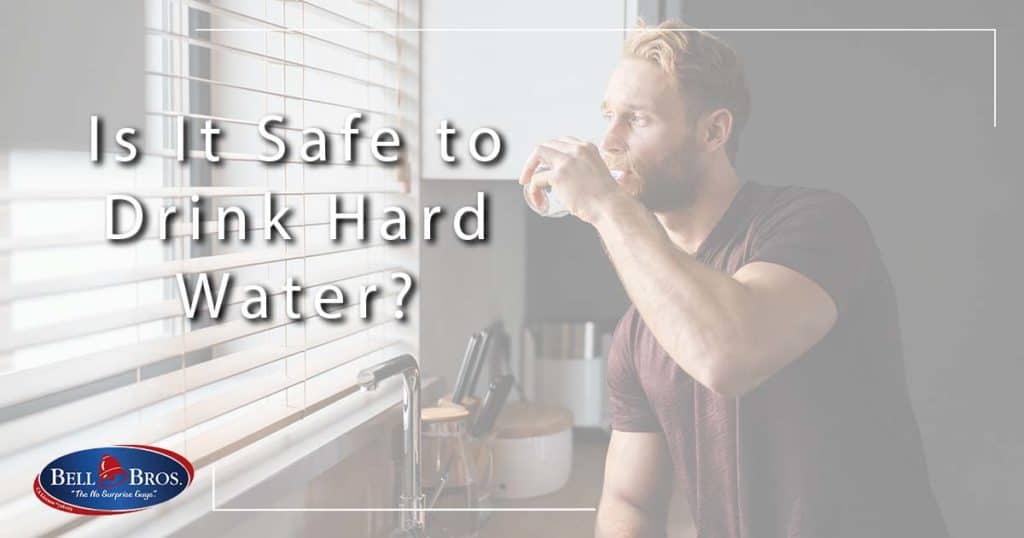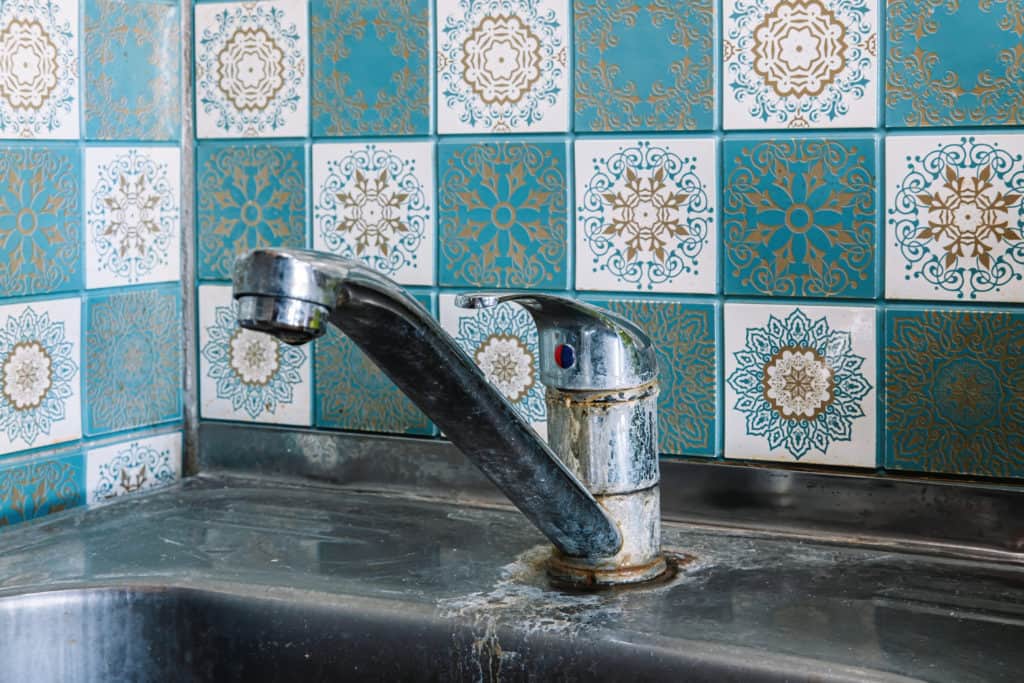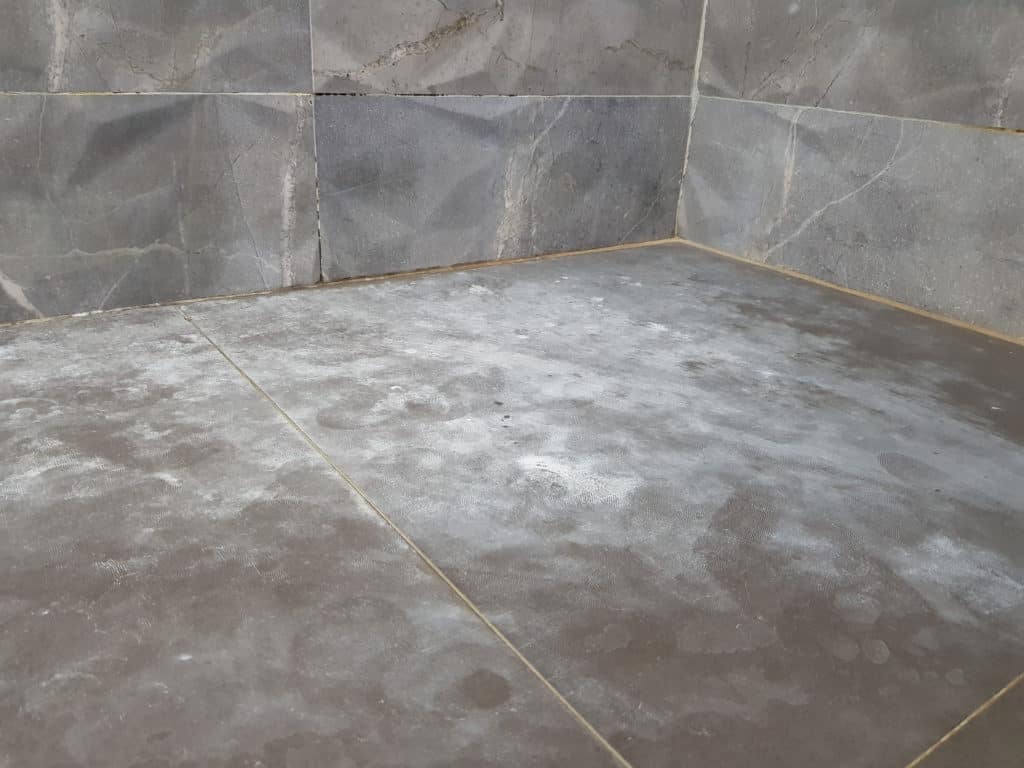Is It Safe to Drink Hard Water?
 Nearly 85% of the U.S. population lives in a hard water region. Since water is crucial to living, many people wonder if it’s safe to drink this water.
Nearly 85% of the U.S. population lives in a hard water region. Since water is crucial to living, many people wonder if it’s safe to drink this water.
We’re here to say that yes, it’s safe.
We’ll discuss how hard water forms, why it’s seen as a problem, the health benefits it can provide, and how hard water affects your plumbing and pipes.
What is hard water?
Hard water earns its name from the amount of dissolved calcium and magnesium in the water. Any water system that uses groundwater as a source may have hard water. This is because water is a solvent for naturally-occuring minerals, and it dissolves these minerals as it moves through rocks and soil.
How is hard water measured?
It’s measured by the number of calcium carbonate grains per gallon (gpg) and spans five ranges:
- Soft: Less than 1 gpg
- Slightly hard: 1 to 3.5 gpg
- Moderately hard: 3.5 to 7 gpg
- Hard: 7 to 10.5 gpg
- Very hard: More than 10.5 gpg
Why do people see hard water as a problem?
The calcium in hard water reacts with many types of soaps and detergents, forming what many people know as soap scum. This film or residue coats dishes, glassware, clothes, hair, and skin; you might feel the need to clean or bathe again to fully wash away the texture. For your skin and hair, it can cause dry skin and brittle hair, relegating you to buying more lotions and conditioners to compensate for a never-ending cycle.

Old rusty sink faucet in kitchen. Rust streaks, calcium scale, hard water. Concept of poor water quality.
Hard water also affects your clothing and other fabrics, such as blankets and towels. The extra minerals cause these materials to wear sooner than expected, causing faded colors and frayed edges.
Plus, the residue and mineral deposits of hard water are unsightly. If you’ve heard someone talk about limescale, it’s a common byproduct of hard water and causes crusty, hard-to-remove stains on surfaces, such as toilet bowls, shower floors, and water taps. Limescale usually has a whitish gray appearance, but can be pink or rust colored.
Drinking Hard Water Actually Has Some Health Benefits
It might not smell nor look appealing, but drinking hard water does offer some health benefits for a range of conditions.
- Digestive health: In the right amount, the calcium and magnesium in hard water help against constipation Plus, magnesium can alleviate diarrhea and stomach cramps.
- Improve insulin regulation: Many diabetics have lower than normal magnesium production; this affects the channels in the body which regulate insulin production. Extra magnesium from the water may counter the lower magnesium production.
- Improved heart health: Large-scale studies have shown a direct link between consuming more calcium and magnesium and heart stimulation with improved efficiency for pumping blood through the body.
- Possible cancer prevention: Research has begun to show the high magnesium concentration in hard water may be effective in stimulating the immune system and protecting against all types of cancer.

The Only Thing Hard Water Hurts are Your Pipes (Potentially)
The cosmetic issues of hard water are annoying, but they can pale in comparison to how it affects your home’s pipes and plumbing system. These functional issues range from inconvenient to downright expensive.
- Increased energy costs: Having to constantly rewash dishes, clothes, and yourself because of soap scum and residue drives up utility bills.
- Less water flow: As the mineral deposits and limescale build inside your water pipes, the water flow decreases because of the narrow passageway. This also leads to an increase in water pressure.
- Cracks or breaks: When the water pressure builds, eventually something gives to alleviate the pressure, but it’s usually because the pipe cracks or breaks.
- Corrosion: Many older homes have metal plumbing and pipes that react to excessive amounts of calcium and magnesium. The reaction causes corrosion to develop which weakens the pipe and sets the stage for repairs and replacements.
Can I Do Anything to Help My Hard Water Issues?
Regular plumbing maintenance and installing a water softening system are two ways to combat hard water. Regular maintenance includes:
- Using commercial chemical cleaners in drains: These common cleaners should never be used in water lines due to their toxic ingredients. Take care if using them, especially if you have PVC pipes which can soften and leak with the chemicals.
- Flush the hot water heater yearly: Because heating hard water increases the amount of mineral deposits in the plumbing, flushing the water heater each year should reduce the impact.
 Water softening systems improve the water quality throughout your house by removing the extra calcium and magnesium. Ion exchange, salt-free, and reverse osmosis are the three most common types of systems available. Ask a qualified plumber which would best suit your needs.
Water softening systems improve the water quality throughout your house by removing the extra calcium and magnesium. Ion exchange, salt-free, and reverse osmosis are the three most common types of systems available. Ask a qualified plumber which would best suit your needs.
Hard water is a nuisance in many homes, but it’s perfectly safe for your household — pets included — to drink. If you have any hard water or plumbing questions call a Bell Bros professional today.

